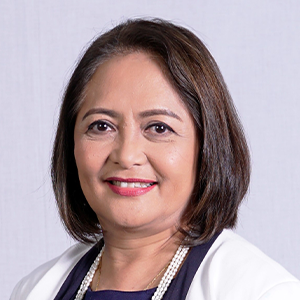The Philippines is laying the foundations for a thriving financial industry, and much of this success can be attributed to the strategic initiatives undertaken by the Bangko Sentral ng Pilipinas (BSP), the country’s central bank. The BSP has played a pivotal role in shaping the country’s financial footprint through a series of visionary programs and policies.
In her keynote address at Finance Philippines 2023 in Makati, BSP’s deputy governor Chuchi Fonacier highlighted several key initiatives that the BSP is undertaking, such as the Digital Payments Transformation Roadmap (DPTR). This ambitious plan aims to propel the nation towards a cashless society by the year 2030. With digital wallets, mobile payment solutions, and the growing prevalence of e-commerce, the DPTR has set a clear path for the Philippines to embrace a modern and efficient payment ecosystem. This shift not only enhances convenience for citizens but also strengthens the security and transparency of financial transactions.
Another critical aspect of the BSP’s strategy is its commitment to maintaining price stability. The inflation-targeting framework implemented by the BSP seeks to keep inflation rates within the range of 2% to 4%. This framework instills confidence in investors and businesses and fosters an environment conducive to economic growth.
Furthermore, the BSP has prioritised the strengthening of financial supervision and the promotion of financial inclusion. Microfinance and mobile banking have emerged as powerful tools to bring the unbanked and underserved communities into the formal financial sector.
In addition to these core initiatives, the BSP has taken proactive steps to keep pace with the evolving financial landscape. The introduction of regulations on digital banks and the establishment of a financial technology sandbox signals the BSP’s commitment to fostering innovation while ensuring regulatory oversight.
Digital banks and super apps thrive in the Philippines
In the Philippines, digital banks such as UnionDigital Bank, GoTyme, and Tonik enjoy wide adoption, while apps such as Maya and GCash are deeply ingrained in the daily lives on the population, signaling a preference for digital transactions.
By leveraging artificial intelligence (AI) and machine learning (ML), digital banks and super apps can offer hyper-personalised financial services. Patricia de Villa, UnionDigital’s chief product officer, highlighted the importance of data and personalisation of services, where customers receive tailored product recommendations, investment strategies, and even budgeting advice. For instance, a digital bank can analyse a user’s spending habits and suggest a savings plan tailored to their financial goals, enhancing the overall customer experience.
Abbie Casanova, president and CEO of SB Finance, and Lito Villanueva, EVP and chief innovation and inclusion officer of RCBC, also shared that open banking and application programming interfaces (API) are essential components for seamless integration of various financial services into a single platform. Users can link their bank accounts, credit cards, and investments, providing a holistic view of their financial health.
Through open banking and API, digital banks, fintechs, and super apps can offer services beyond traditional banking, including insurance, wealth management, and e-commerce. This versatility empowers customers to manage all their financial needs in one place, eliminating the need to switch between multiple apps and websites.
Cloud adoption and implementation of cloud-native solutions hold promise
In the Philippines, cloud-based applications have emerged as a game-changer for businesses, offering numerous advantages such as scalability, agility, and enhanced security. These benefits, coupled with the power of task automation and the integration of AI and ML, are revolutionising operational efficiency, particularly in sectors like finance, e-commerce, and customer service.
John Howard Medina, Philippine Bank of Communications’ chief operation officer, and Lucose Eralil, Security Bank’s EVP and head of enterprise technology and operations, highlighted that adoption of cloud-native solutions by Philippine banks can scale growth by allowing companies to adjust their IT infrastructure in response to changing needs without significant capital investment. Cloud can also significantly reduce processing times by automating routine tasks such as data entry, transaction processing, and document verification. Lastly, AI and ML can improve customer service, fraud detection, and decision-making.
Striking the balance between innovation and compliance in the country
The rapid growth of digital banking and fintech in the country has ushered in unprecedented innovation. However, as these institutions forge ahead with cutting-edge solutions, they must strike a balance between innovation and compliance. Compliance ensures that they adhere to the regulatory frameworks set by authorities to safeguard financial stability, consumer protection, and the overall integrity of the financial system.
Shane Nirash Godwin, HSBC Philippines’ chief compliance officer, cautioned delegates that the FTX cryptocurrency exchange fiasco is a reminder of the importance of robust risk assessment in the digital banking landscape. Banks must ensure credible asset calculations and risk evaluations to prevent similar incidents. This includes continuously assessing the quality of assets held and evaluating their liquidity, security, and compliance with applicable regulations.
Melchor Plabasan, BSP’s director of technology and risk and innovation supervision, also reminds banks that they have access to powerful tools to enhance their regulatory compliance efforts. These technologies can streamline reporting processes, improve risk assessment accuracy, and enable proactive interventions. Leveraging these innovations can help banks adapt to evolving regulatory requirements more effectively.












All Comments